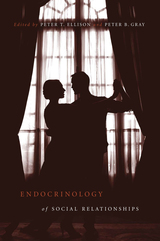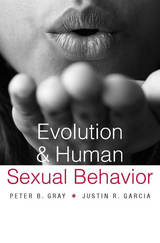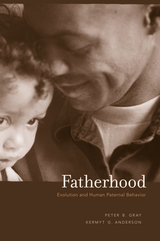
In social relationships—whether between mates, parents and offspring, or friends—we find much of life’s meaning. But in these relationships, so critical to our well-being, might we also detect the workings, even directives, of biology? This book, a rare melding of human and animal research and theoretical and empirical science, ventures into the most interesting realms of behavioral biology to examine the intimate role of endocrinology in social relationships.
The importance of hormones to reproductive behavior—from breeding cycles to male sexual display—is well known. What this book considers is the increasing evidence that hormones are just as important to social behavior. Peter Ellison and Peter Gray include the latest findings—both practical and theoretical—on the hormonal component of both casual interactions and fundamental bonds. The contributors, senior scholars and rising scientists whose work is shaping the field, go beyond the proximate mechanics of neuroendocrine physiology to integrate behavioral endocrinology with areas such as reproductive ecology and life history theory. Ranging broadly across taxa, from birds and rodents to primates, the volume pays particular attention to human endocrinology and social relationships, a focus largely missing from most works of behavioral endocrinology.

Few things come more naturally to us than sex—or so it would seem. Yet to a chimpanzee, the sexual practices and customs we take for granted would appear odd indeed. He or she might wonder why we bother with inconveniences like clothes, why we prefer to make love on a bed, and why we fuss so needlessly over privacy. Evolution and Human Sexual Behavior invites us into the thought-experiment of imagining human sex from the vantage point of our primate cousins, in order to underscore the role of evolution in shaping all that happens, biologically and behaviorally, when romantic passions are aroused.
Peter Gray and Justin Garcia provide an interdisciplinary synthesis that draws on the latest discoveries in evolutionary theory, genetics, neuroscience, comparative primate research, and cross-cultural sexuality studies. They are our guides through an exploration of the patterns and variations that exist in human sexuality, in chapters covering topics ranging from the evolution of sex differences and reproductive physiology to the origins of sexual play, monogamous unions, and the facts and fictions surrounding orgasm.
Intended for generally curious readers of all stripes, this up-to-date, one-volume survey of the evolutionary science of human sexual behavior explains why sexuality has remained a core fascination of human beings throughout time and across cultures.

We've all heard that a father's involvement enriches the lives of children. But how much have we heard about how having a child affects a father's life? As Peter Gray and Kermyt Anderson reveal, fatherhood actually alters a man's sexuality, rewires his brain, and changes his hormonal profile. His very health may suffer—in the short run—and improve in the long. These are just a few aspects of the scientific side of fatherhood explored in this book, which deciphers the findings of myriad studies and makes them accessible to the interested general reader.
Since the mid-1990s Anderson and Gray, themselves fathers of young children, have been studying paternal behavior in places as diverse as Boston, Albuquerque, Cape Town, Kenya, and Jamaica. Their work combines the insights of evolutionary and comparative biology, cross-cultural analysis, and neural physiology to deepen and expand our understanding of fatherhood—from the intense involvement in childcare seen in male hunter-gatherers, to the prodigality of a Genghis Khan leaving millions of descendants, to the anonymous sperm donor in a fertility clinic.
Looking at every kind of fatherhood—being a father in and out of marriage, fathering from a distance, stepfathering, and parenting by gay males—this book presents a uniquely detailed picture of how being a parent fits with men's broader social and work lives, how fatherhood evolved, and how it differs across cultures and through time.
READERS
Browse our collection.
PUBLISHERS
See BiblioVault's publisher services.
STUDENT SERVICES
Files for college accessibility offices.
UChicago Accessibility Resources
home | accessibility | search | about | contact us
BiblioVault ® 2001 - 2024
The University of Chicago Press









